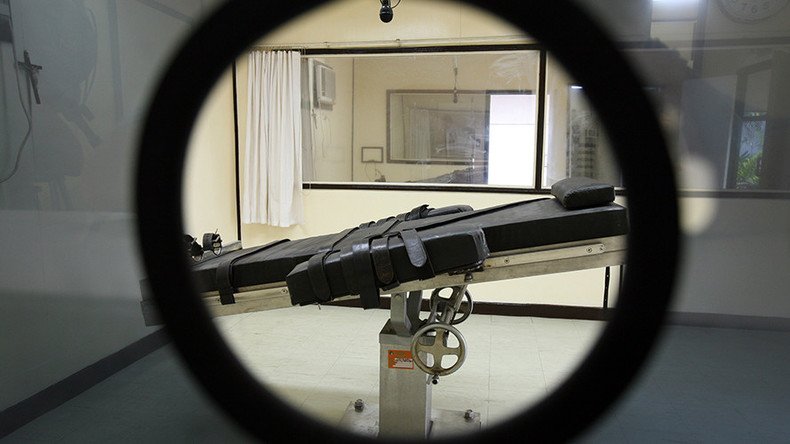After 11-year break, Arkansas to resume executions with new lethal injection drugs

Arkansas has received a new supply of a lethal injection drug, giving the state an option to begin executing death row inmates again after a hiatus of more than 10 years. There are 34 pending executions.
The newly-supplied vecuronium bromide – a paralyzing agent – has an expiration date of March 1, 2018 and could potentially be used before that date for the state’s first eight executions, the Associated Press reported, citing Arkansas Department of Correction spokesman Solomon Graves.
The state’s stock of the previously provided paralytic drug expired on June 30.
Arkansas wasn't able to acquire new batches of the drugs that are actually used to kill inmates, potassium chloride and midazolam. However, their current stores of those drugs aren't expected to expire until January 2017 and April 2017, respectively.
Even though Governor Asa Hutchinson set the execution dates last year, the state is unable to proceed with them until the Arkansas Supreme Court decides on requests from the inmates in question.
Arkansas AG wants to set 8 execution dates after 10-year death penalty hiatus http://t.co/hyfGS7DPhFpic.twitter.com/h4d8ZndRWg
— RT America (@RT_America) September 2, 2015
Eight inmates have issued requests to the high court for a rehearing of the so-called drug secrecy law that allows prisons to keep information about their lethal injection substances confidential. They argued that concealing the maker, seller and other information about the drugs could lead to cruel punishment.
However, the court has already upheld the legislation once, supporting the state in a split 4-3 decision on June 23. For the ruling to come into effect, the justices have to deny the inmates' requests.
Gov. Hutchinson's spokesman, J.R. Davis, told AP that the governor is going to wait for the law to come into force before asking Attorney General Leslie Rutledge to make the execution dates set official.
Inmates, for their part, are going to ask the US Supreme Court to weigh in on the case.
The eight inmates' filing argues that the state is violating the twelfth clause in the Arkansas Constitution that requires an "accurate and detailed statement" of state revenue expenditures. Suppliers of chemicals used in executions are kept secret to protect those companies from retribution.
Overall, the state has 34 executions pending. Its supplies of two other drugs, potassium chloride and the midazolam, expire at the end of January 2017 and in April 2017, respectively.
In October, the state’s Department of Correction announced that the supplier, whom it did not name, would not resupply midazolam, vecuronium bromide and potassium chloride after they expire.
Under a law passed in May 2015, Arkansas is to administer barbiturates when putting inmates to death.
“I think we have a firmly well-established, court-approved method of execution, and that’s what we should plan for and try to implement,” Hutchinson told AP last week.
Arkansas hasn't executed an inmate since November 2005, when Eric Nance was put to death. Male death row inmates are housed at at the Varner Unit maximum security prison, and female death row inmates are housed at the McPherson Unit prison.












